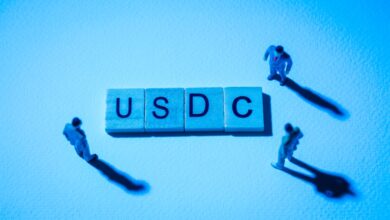Saudi Arabia And UAE Release Report On Latest CBDC Trial

Central Banks of Saudi Arabia and the United States Arab Emirates have released a joint statement to announce their intention to develop a mutual central bank digital currency. This latest report is coming off the back of reports by major news outlets that China is intensifying its CBDC testing ahead of an official launch in the coming months.
According to the reports, both central banks mentioned that they have been working on the CBDC for over a year now. Furthermore, the report mentions that they are already making headway, which is another positive part of Blockchain technology and the entire industry.
Saudi Arabia and UAE name their new CBDC “Project Aber”
According to the two parties involved in “Project Aber,” the codename of the CBDC, the project was developed to establish a “proof of concept.” According to the project’s brief, when it was first announced in 2019, both nations said they want to use the project to contribute their knowledge of DLT and CBDC to their respective societies.
This project has been touted as the first of its kind due to both nations combining their expertise and prowess to develop the CBDC. According to the project’s brief, its name “Aber” stands for something unique in their native Arabic language.
Aber is an Arabic word that means “across the border,” and it means that both nations were trying to use the new technology to show their prowess across their respective borders. The central banks also hope to create a technology that would blow the mind of rival countries already in the race to develop their respective central bank digital currencies.
Project Aber will work in three phases, with each stage very different from the other as both central banks want to carry out the trial among six commercial banks across both countries. Another thing in the report is that the digital currencies will be backed by real cash.
The report claims the CBDC is almost complete
According to the report, both central banks wanted the digital currency to be backed by real money because it wants to eliminate issues surrounding existing payments and security. The report also states that the CBDC, which will be owned by both countries, will be able to serve major uses, including cross border payments.
Another advantage is that the new CBDC is also an improvement when centralized payment methods are considered, especially its resilient architecture. The latest report regarding Project Aber noted that the project had met all the requirements, clearing out all the obstacles it faced. Also, the report claims that the new CBDC also passed all its privacy and decentralization requirements.
The new CBDC was also said to have passed other issues such as economic risks and how to help against them. In the next step that would be taken to develop the CBDC better, both parties settled on using DLT technology to increase the security of the digital currency.
Other suggestions were to increase the number of banks participating in the testing and another trial to see if they can include other financial assets like bonds in the testing. With the CBDC almost completed, the Middle East will be looking to rival other countries to create a digital currency. Even though other countries have made significant progress in that field, China is still in the lead regarding developing a CBDC.
Tokenhell produces content exposure for over 5,000 crypto companies and you can be one of them too! Contact at info@tokenhell.com if you have any questions. Cryptocurrencies are highly volatile, conduct your own research before making any investment decisions. Some of the posts on this website are guest posts or paid posts that are not written by Tokenhell authors (namely Crypto Cable , Sponsored Articles and Press Release content) and the views expressed in these types of posts do not reflect the views of this website. Tokenhell is not responsible for the content, accuracy, quality, advertising, products or any other content or banners (ad space) posted on the site. Read full terms and conditions / disclaimer.






